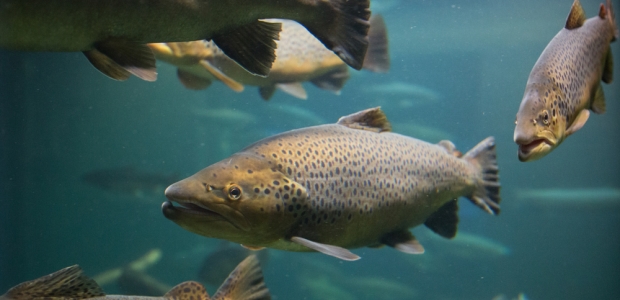
New Leader Chosen for Washington's Salmon Recovery Office
Steve Martin has been executive director of the Snake River Salmon Recovery Board since 2001.
Steve Martin has been selected to lead the Governor's Salmon Recovery Office in Washington state. The office coordinates the efforts of 25 community-based watershed groups and seven regional organizations statewide that implement federally approved recovery plans for salmon, steelhead, and bull trout.
In the early 1990s, the federal government began listing salmon species as endangered under the Endangered Species Act. By 1999, some salmon populations had disappeared completely and listings affected nearly three-fourths of the state. Today, federal agencies have listed 18 species of salmon, steelhead, and bull trout as either threatened or endangered.
"Steve has been and will continue to be a great leader of Washington's salmon recovery effort," said Kaleen Cottingham, director of the Recreation and Conservation Office, which oversees the office. "He understands the very complicated world of salmon recovery and what it takes to return this iconic fish to healthy levels."
Martin lives in Dayton, Wash. He has been the executive director of the Snake River Salmon Recovery Board since 2001. Previously, he was a biologist with the Washington State Department of Fish and Wildlife. He has bachelor's and master's degrees in biology from Eastern Washington University.
The state's announcement noted that many businesses rely on the "world-renowned Pacific salmon" and that commercial and recreational fishing are estimated to support 16,000 jobs in the state and $540 million in personal income.
"I am very excited about taking on this new role," Martin said. "We have made a lot of progress in salmon recovery during the past two decades, but there are still many challenges ahead of us. We know how to recover salmon and we have the people and resources in place. Salmon are ours to save."
"Steve has been in the trenches of salmon recovery since the beginning," Cottingham said. "He brings great enthusiasm, energy and knowledge to the role."